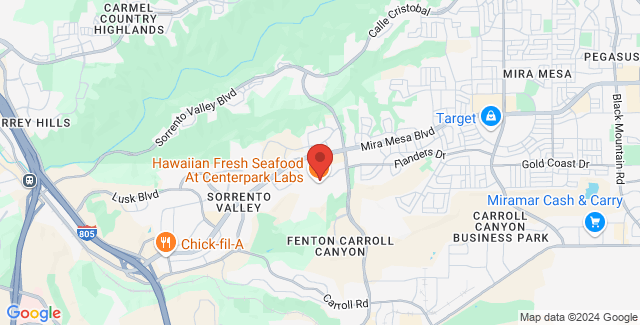An Increased Risk of Dangerous Actos® Complications
Thousands of diabetic patients have experienced serious Actos® complications after taking the drug. Actos® is an insulin sensitizer medication that has been a catalyst for many civil lawsuits. Case settlements and court verdicts have already amounted to more than $2.5 billion, and plaintiffs continue to come forward with diagnoses of bladder cancer, heart failure, and other adverse health effects.

Clinical studies have verified a connection between long-term use of Actos® and malignancies, as well as heart failure and other complications. If you or a loved one experienced a serious complication after taking this drug, you may have a claim in the Actos® lawsuit. Please contact an experienced pharmaceutical liability attorney today to schedule your free consultation.
Actos® Treatment for Diabetes
Actos® (pioglitazone) is one of many drug therapies introduced in recent decades to help diabetic patients control blood glucose levels. Since being introduced to the market in 1999, Actos® has been one of the most successful drugs of its class. The Japanese manufacturer, Takeda Pharmaceuticals, has earned billions in revenue from this medication.
Designed specifically to treat type 2 diabetes, Actos® increases the body’s receptivity to insulin. The drug attaches to cell receptors and helps to remove excess glucose from the bloodstream. Actos® also works to inhibit the liver from secreting stored glucose into the blood. This dual mechanism of action is intended to help patients maintain healthy blood glucose levels within a normal range, preventing common diabetes complications that can affect eyesight, nerves, and kidney function.
Many patients have found Actos® to be an effective therapy, but unfortunately, there have been unexpected side effects leading to devastating injuries and deaths. In 2007, the U.S. Food and Drug Administration (FDA) ordered Takeda to add a “black box warning” to Actos® packaging. This is the strongest warning label required by the FDA and it is intended to alert patients and doctors of the increased risk for congestive heart failure. Following this update, the FDA issued an announcement concerning numerous cases of bladder cancer in patients who had been taking the drug for a year or more.
Severe Actos® Complications
Cancer and heart problems are the most common complications reported by doctors and Actos® patients. Other reports include kidney and liver problems, vision loss, and bone fractures. In addition to the FDA’s adverse event reporting system, these complications have also been seen in medical studies and journal articles.
Bladder Cancer and Other Malignancies
Bladder cancer has been the most commonly reported complication from Actos®, prompting thousands of personal injury and wrongful death lawsuits. This condition is treatable when caught in its earliest stages, but may require surgery, chemotherapy, and radiation. Without a timely medical intervention, bladder cancer can prove fatal.
A medical study reported in the British Medical Journal in March 2016, confirmed what many patients have alleged: a significantly elevated risk of bladder cancer seen in patients taking Actos®. The results of the study found a statistically significant increased risk of patients developing bladder cancer, all of whom took the drug between 2000 and 2014.
Another recent study, reported in the July 2015, issue of the Journal of the American Medical Association (JAMA), found evidence linking Actos® to cases of pancreatic and prostate cancers as well. The research was funded by Takeda (as was ordered by the FDA in 2003). Conducted by the University of Pennsylvania and Kaiser Permanente, the study found that Actos® patients were more likely to be diagnosed with pancreatic cancer, which is notoriously difficult to treat. Additionally, an elevated risk of prostate cancer was also found amongst patients. Though this study did not link Actos® to bladder cancer, researchers were not able to exclude the previously observed risks.
Heart Failure
Many Actos® lawsuits cite cardiac complications and deaths caused by the drug. Actos® was approved for patients despite a link to heart failure events seen in initial clinical trials. When approving a new drug, the FDA considers its risk to benefit ratio, and Actos® was seen as a good alternative to Avandia, a similar drug connected to an increased risk of heart attack. Both drugs, which belong to the same class of medications (thiazolidinediones), have been shown to exacerbate the diabetic patient’s tendency to accumulate bodily fluids.
In 2007, a study was reported in JAMA, that found an increased incidence of serious heart failure in patients using pioglitazone. Additional medical studies confirmed elevated risks of heart failure in Actos® patients compared to placebo and other diabetes medications.
Cardiologists became increasingly concerned, and in 2010, a joint advisory was issued by the American College of Cardiology and the American Heart Association recommending that patients on thiazolidinediones be closely monitored.
Chronic Kidney Disease
Researchers have also linked Actos® with increased risk of chronic kidney disease (CKD). A National Taiwan University study showed that patients taking pioglitazone were four times more likely to develop this problem over the control group. CKD is typically slow to develop, but without proper treatment, may lead to kidney failure. The FDA posted Actos® on a watch list in 2013, with concerns about a potential link to rhabdomyolysis, a rare condition that can result in kidney failure.
Vision Impairment
The American Diabetes Association has warned patients that Actos® has been connected to vision loss and blindness. A medical study posted in the American Journal of Ophthalmology in 2009 showed that both Actos® and Avandia increase the risk of diabetic macular edema (DME). Surgery and medication can prevent ongoing visual impairment from DME, but lost vision cannot be restored.
Liver Injury
There have been reported cases of acute liver failure attributed to pioglitazone, including some fatalities. This condition typically presents within one to six months after beginning treatment with the drug. Most patients will recover after going through intensive treatment, although some may require a liver transplant to restore lost function.
Bone Fracture
Another article published in the New England Journal of Medicine that was studying the effects of pioglitazone on strokes, reported that about one out of 20 Actos® patients suffers a bone fracture within five years of beginning therapy for pre-diabetes. Actos® is not FDA approved for pre-diabetic treatment, but there have been allegations of off-label marketing to doctors for to promote this use. Previous medical studies have also linked Actos® to bone fractures in diabetic patients, specifically with injuries to the lower arms, legs, or hips.
Seeking Compensation for Actos® Complications
While thousands of patients have already reached settlements for Actos® injury compensation, there is still time for others to make a claim. Though the statute of limitations law applies, the case filing deadline is related to the patient’s discovery of the injury.
Initial Actos® lawsuits filed in federal court were consolidated under multidistrict litigation (MDL) in 2011. In MDL, the legal action is overseen by one judge, but individual plaintiff’s cases are still separately considered for settlement purposes. Thousands of MDL plaintiffs accepted a 2015 settlement offer that will cost Takeda over $2 billion.
Our pharmaceutical attorneys are currently representing Actos® plaintiffs. If you or a family member have been affected after being prescribed the medication, you may qualify to receive compensation for your injuries. Please contact our legal team today to schedule a free consultation and case review.




